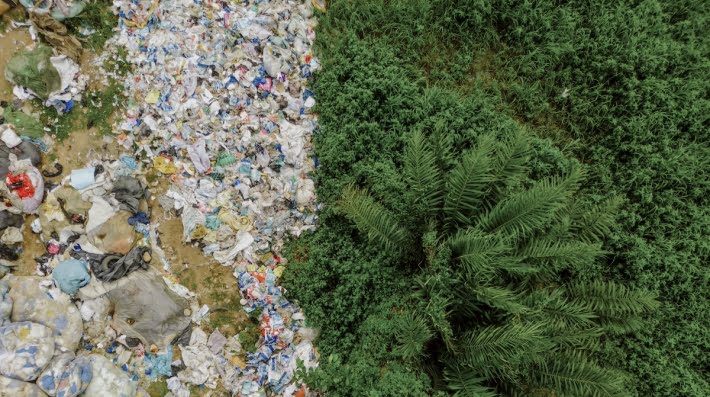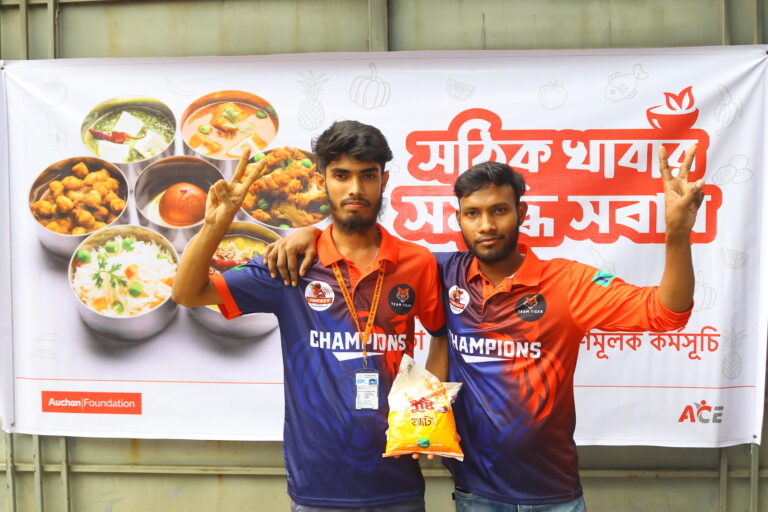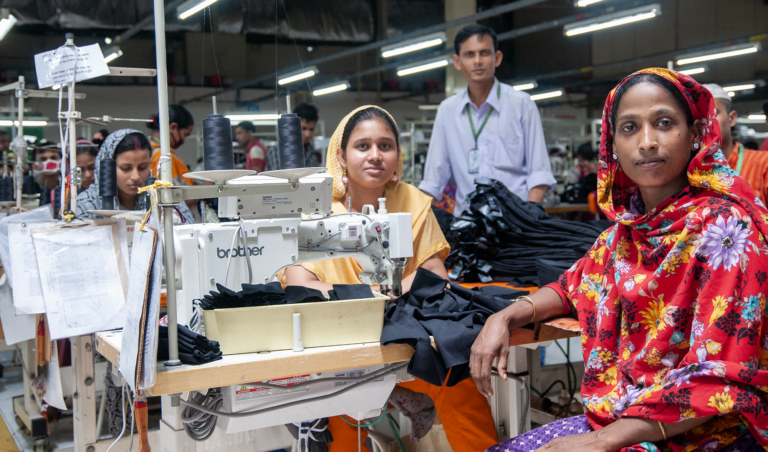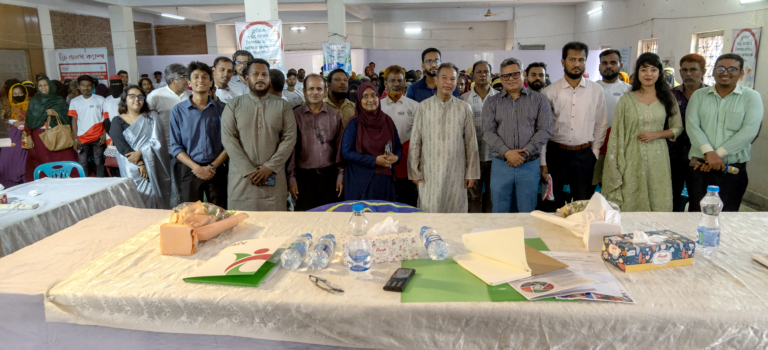Land vs. Plastic: Silent Threat for Environmental Preservation in 2024
——————Hasna Heena Mahmud
Researcher (Environment & Climate Change)
“On a sunny winter morning, under a big Parijat tree, a few children were playing. Cloud-fresh winter breeze was everywhere. There was bottled green grass throughout the field with Parijat flowers shattered everywhere, and I was walking on them barefooted”.
“Was it a dream or a fairy tale?” – one of my students asked. I smiled and said, “No, that was life dear”.
Growing up in the early 2000s, I recall being closely associated with nature and the outdoors. From enjoying the six seasons of Bangladesh to exploring nature with friends, being outside was a huge part of my childhood. Sadly, this is not the same for today’s generation. With the changing climate, there are now only three seasons that we could feel in Bangladesh and environmental pollution is to blame.
To pursue modernization, humans have sacrificed the earth’s environment. Air, Water, and Soil none of them are free from the curse of pollution. We don’t have fresh air to breathe, many vulnerable communities are suffering from the lack of access to safe water and the environmental element that we have taken for granted the most is our land (soil). The entire nation is dependent on the agricultural sector that is based on our fertile land.
But is our land still fertile? Plastic pollution and some anthropogenic activities are significant contributors to the state of our environment today.
Bangladesh is facing a massive environmental crisis due to plastic pollution. The country has been dealing with an onslaught of plastic waste and its detrimental effects on the environment and the health of its citizens. Bangladesh is one of the most densely populated countries in the world and has a high poverty rate, making it especially vulnerable to the threat of plastic pollution. Single-use plastics, which are plastic items that are used just once and then thrown away, are particularly concerning; These items, which include bottles, wrappers, straws, and bags, are manufactured using chemicals derived from fossil fuels and have been responsible for the creation of several tons of plastic waste.
It is damaging our environment and wreaking havoc on the soil, health of people, and wildlife; One of the most devastating forms of pollution is plastic debris, which has far-reaching effects on both aquatic and terrestrial ecosystems. As plastic finds its way into the food chain, it is becoming increasingly clear that due to plastic pollution, both Earth and humans are in danger. Not only do these micro-plastics pose a danger to soil and wildlife, but human health can also be negatively impacted by exposure to micro-plastics and chemicals added to plastics during processing, including hormonal imbalances, reproductive problems, and even cancer.
From the damage it does to our environment, to the negative impact on our health, single-use plastics are having a devastating effect on our planet. An astounding 87,000 tons of single-use plastic are discarded in Bangladesh each year, according to the Environment and Social Development Organization. Plastic waste that is directly disposed in ecosystem lasts for decades or even centuries because conventional plastic is not biodegradable.
Although plastic pollution is a shared responsibility, each person’s role in the solution may look different. This is because the main groups responsible for plastic pollution are individuals, governments, and producers all of whom require separate approaches to mitigate the problem.
Bangladesh has made progress in reducing the use of single-use plastic shopping bags but has fallen behind in regulation since 2002. As other countries of the world continue to contribute to the plastic pollution problem, downstream countries like Bangladesh are the ones that suffer the most from the climate change impacts and plastic pollution.
According to World Bank Report 2019, Bangladesh will need to manage plastic waste sustainably to combat growing plastic pollution and promote green growth. The Bangladesh government can adopt to reduce plastic waste and create a more sustainable future by implementing a global approach. These strategies emphasize increasing material and energy efficiency, recovering value from waste, switching to renewable energy sources and natural processes, re-designing/chemical alteration in plastic products, providing functioning rather than ownership, promoting sufficiency, and establishing scale-up solutions. Bangladesh can take the lead in addressing the plastic catastrophe and building a more sustainable future with the correct framework and assistance.
Together we can conserve Our Environment, Our Land, Our Mother.




